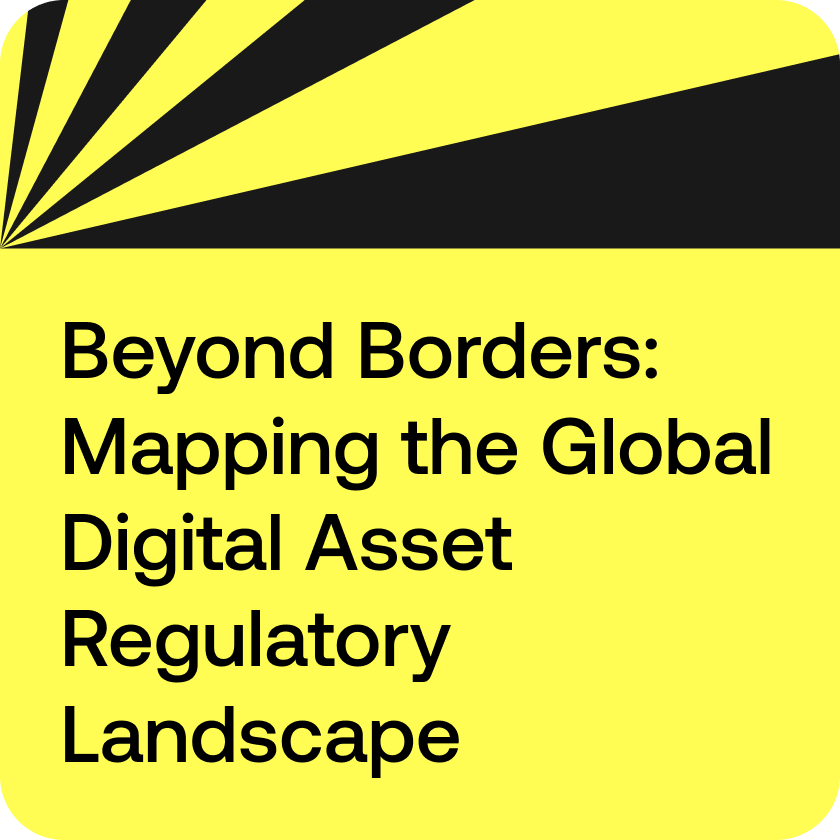How Crystal Blockchain works with Cryptoprocessing by CoinsPaid to support its daily Know-Your-Transaction (KYT) and risk management processes.

In January 2022, we sat down with Maria Akulenko, the Head of Legal and Compliance for Cryptoprocessing by CoinsPaid to talk about their compliance procedures, how Crystal Blockchain assists their team in meeting their due diligence requirements and conducting transaction monitoring to meet regulatory requirements.
(Cryptoprocessing by CoinsPaid is a secure payment solution for businesses and individuals.)
What are Cryptoprocessing/ CoinsPaid’s core principles when it comes to compliance?
The cornerstone of compliance at CoinsPaid is a risk-based approach. We use it for identification, merchant assessment, transaction monitoring, training, and the compliance-building culture among our employees and clients.
Our daily activities aim to achieve the highest standards meeting national and international AML/ CFT laws and regulations. We accept only those clients whose source of wealth and funds can be reasonably established as legitimate.
Furthermore, conduct client due diligence on an ongoing basis, depending on the business, complexity of transactions, operating markets, etc. CoinsPaid promotes the implementation of new methods and automation of compliance to the furthest extent possible.
Who are your key customers and what compliance due diligence requirements do they have?
Most of our customers are from high-risk industries, like gambling or trading sectors. However, we have quite a range of clients that vary from marketing or apartment lease agencies to cybersports merchants. At CoinsPaid, we believe that implementing a solid screening process as part of our know your customer and customer due diligence during onboarding and throughout the relationship is a critical component of dealing with high-risk customers. In other words, continuous monitoring is crucial for us to manage our high-risk customers effectively.
As our clients also vary from publicly traded companies to small local businesses, we apply different levels of due diligence. Our compliance requirements can be summarized as follows:
- understanding the nature and purpose of customer relationships to develop a merchant risk profile;
- conducting ongoing monitoring to identify and report suspicious transactions; and
- maintaining and regularly updating customer information.
Higher-risk customers and their transactions are reviewed more thoroughly at account opening and more frequently during our account relationships. Enhanced due diligence measures may include obtaining extra documentation that verifies the source of wealth and funds, checks for adverse media coverage, and a particular ongoing monitoring strategy.
How do you manage multi-jurisdictional regulatory requirements for your company and your customers?
Following regulatory developments in virtual assets across multiple jurisdictions is a daily challenge. Our legal team constantly monitors developments in the jurisdictions of our primer interest. We can see regulatory authorities playing “catch-up” as technology continues to push the borders of what we formally thought was not possible. Also, as part of the blockchain and virtual currencies working group, we contribute to the regulatory development of the EU framework.
We inform our customers of the potential risks associated with using virtual assets. As we offer B2B services, we always emphasize the importance of double-checking whether or not virtual assets can be provided in specific geographic markets to their end customers.
In addition, we continue to conduct constant research on the matter to ensure that we don’t miss anything: some opportunities to expand and certain regulatory restrictions that may need some additional attention on our side.
What best practices do you recommend to payment processors to meet their compliance and due diligence requirements in 2022?
Cryptoprocessing/ CoinsPaid strives to develop and organize new product offerings mitigating potential risks for conducting business. Technology is constantly challenging existing regulations, which are generally reactive in nature. Sometimes, payment processors and companies dealing with virtual assets have to adhere to and follow the spirit of the law rather than the letter. It requires a high degree of integrity and ethical standards, which should be promoted in the industry.
In our view, upcoming compliance challenges in 2022 and beyond will be::
- the rise of the DeFi (Decentralized Finance) segment,
- implementation of FATF (Financial Action Task Force) Travel Rule, and
- data sharing while respecting Data Privacy requirements
How does Crystal’s platform support Cryptoprocessing by CoinPaid and its customers to meet compliance and due diligence requirements?
Crystal Blockchain’s platform supports monitoring transactions of Cryptoprocessing/ CoinsPaid’s clients daily. Know-your-address (KYA) and know-your-transaction (KYT) processes are an essential part of our internal transaction monitoring system.
The compliance team analyzes and comprehends transactions’ patterns, chronicles the flow of funds, and defines sources of funds. Moreover, we have an opportunity to notify our clients concerning suspicious activities of their end-users. This comprehensive approach assists significantly in reducing and mitigating potential money laundering risks and in general financial crime prevention.
In a nutshell, Crystal’s analytic tool supports us in assessing the risk level associated with particular cryptocurrency transactions, screening wallet addresses, and, ultimately, identifying the red flags leading to illegal or fraudulent activities.
Find out more about Crystal’s compliance and due diligence analytics solutions for virtual asset service providers and payment processors at [email protected].



